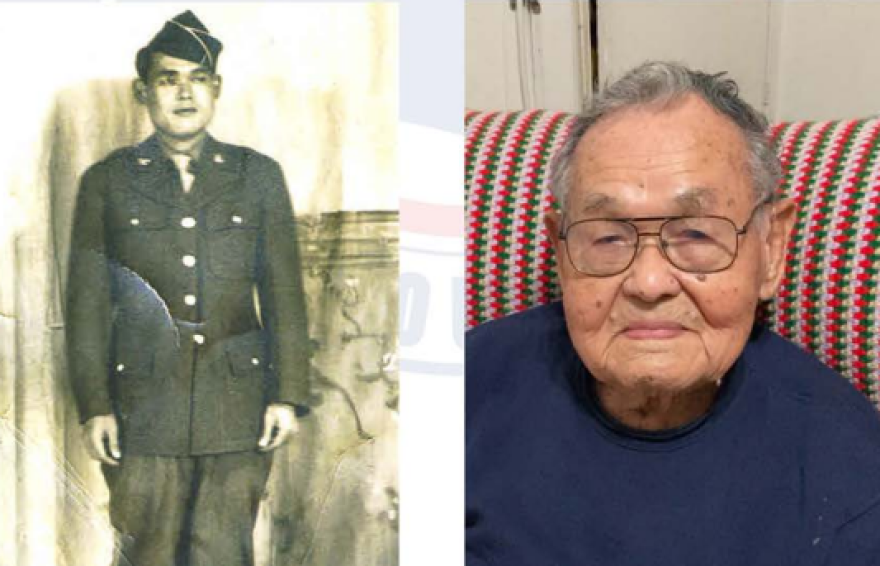On the morning of Dec. 7, 1941, Ralph Matsumoto was 20 years old. He was helping a friend clean their family's pool room when the attack happened.
"I didn't actually see [it] with all the black smoke there," he said. "All those anti-aircraft shells were falling back on the city. It scared the hell out of me."
When the smoke cleared, Matsumoto saw Japanese aircraft attacking Pearl Harbor — even seeing the faces of some pilots.
He also recalls the reaction of residents to being attacked by Japan.
"Everybody was excited, and don't know what was going on," Matsumoto said. "Because they (Japan) was the aggressor, yeah? Because at the time, Honolulu, here, was two-thirds Japanese, you know?"

Although being born and raised in Honolulu, Matsumoto was incarcerated because of his Japanese ancestry. He was released after a couple of weeks.
At the time, Matsumoto was working in a tuna packing shipyard. After the attack, his workplace was taken over by the Marine Corps.
"They issued us an identification badge with a black ring on it, so they know we were Japanese," he said. "It was kind of embarrassing."
Despite the circumstances, Matsumoto was filled with a sense of patriotic duty. He worked as a civilian boat builder for the U.S. Navy, before being drafted by the Army in 1944 as an intelligence officer.
Matsumoto was one of more than 30 Pearl Harbor survivors attending this year's remembrance day ceremony. He joined more than 120 World War II veterans making an emotional trip this year.
"This is such a monumental commemoration," said Michael Malone, program coordinator with Best Defense Foundation. "This was the event that launched us into the Second World War, and reshaped our entire world as we know it today. And all of their individual lives changed at that moment."
Malone's group is one of several that are bringing survivors, and their caretakers, to Hawaiʻi this year. His organization is bringing 63 WWII veterans and Pearl Harbor survivors this year.
"This is incredibly important for these veterans. They're on their final stages of their life, and they want to go, this is driving them, motivating them every day," he said. "We were talking to them for the past several months, and they're just so excited to go and be a part of this."
But it's an anniversary even more somber than usual. Over the years, fewer survivors have been returning.
Eighty years after the attack, many believe this might be the last time most survivors will be able to return to Pearl Harbor — given the age of those servicemembers.

Jim Neuman, Navy Region Hawaiʻi historian, said 151 veterans and survivors would be attending this year's event. But that's not a record.
"For the 75th anniversary . . . well over 300 veterans. But I think that's just a reflection of five years having passed," he said.
With the exception of 2020, roughly 70 WWII veterans and survivors attend the annual Pearl Harbor Remembrance Day ceremony. Neuman says that number increases dramatically during "milestone" years — such as the 75th and 80th anniversaries.
"But considering that the average is about 70 veterans at a typical ceremony, the fact that we have 150 is a pretty good show," said Neuman. "But because of their advanced age, every single day, obviously, is something that we're grateful for — that they're still with us at any given time."
While this year's event is a milestone, he says it's important to remember that what "the greatest generation" really did was simply rise to the occasion.
"They weren't superhuman. They didn't have something in their blood that made them better than anyone else," he said. "They were just a generation that valued what we value. We believe that any generation can be the greatest generation, if they hold those same values and they respond the way that this generation did."
Neuman says there will still be remembrance ceremonies after all survivors have died or can no longer attend. But those remembrances will be different.





